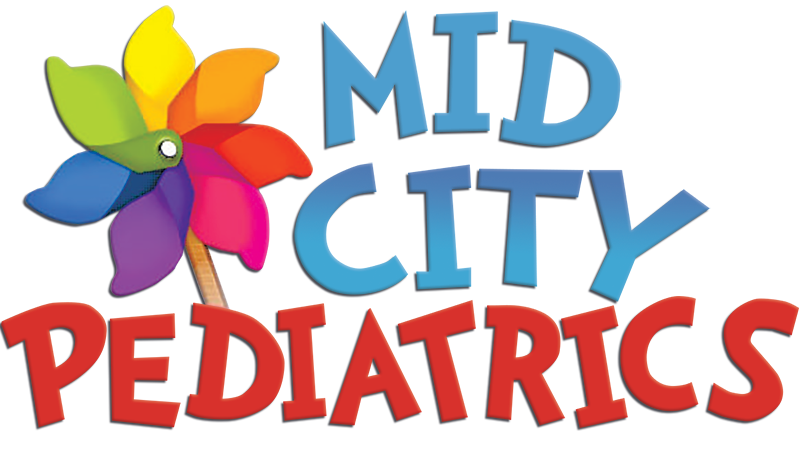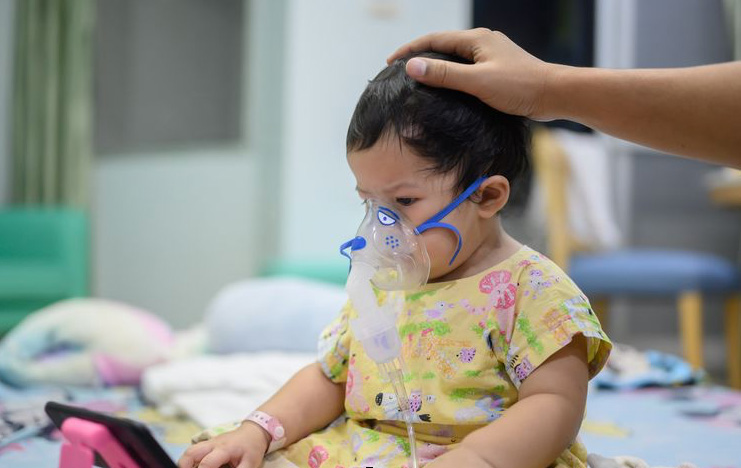Why World Mental Health Day Matters
October 10 is World Mental Health Day — a global reminder that mental health is just as important as physical health. At Mid City Pediatrics, we see every day how emotional well-being affects a child’s overall growth, relationships, and school success.
At Mid City Pediatrics, we believe caring for children means caring for the whole child — body and mind. Mental health is a topic close to my heart, not only as a physician but also because I’ve seen how deeply it can affect families, including my own. Losing a loved one to mental illness gave me a firsthand understanding of how powerful — and how fragile — emotional well-being can be. That experience strengthened my commitment to helping children and parents talk openly about mental health, seek help early, and know they are never alone.
Just like we check growth charts and vaccines, it’s essential to check in on how kids are feeling. Even the happiest, most resilient children experience stress, anxiety, or sadness — and learning to manage those emotions early can make a lifelong difference.
Children Feel Stress Too
From toddlers to teens, children face real stressors:
– Academic pressure
– Social media and peer comparison
– Family transitions or conflict
– Changes in routine or sleep
– Worry about world events they don’t fully understand
Even very young children can show signs of stress or anxiety — often through physical symptoms like stomachaches, headaches, or sleep problems rather than words. If your child seems more withdrawn, irritable, or worried than usual, it’s okay to reach out. Sometimes they need help understanding feelings they can’t yet express.
What We See at Mid City Pediatrics
In recent years, more families have opened up about concerns like:
– School anxiety
– Difficulty focusing
– Mood changes after stressful events
– Social isolation or bullying
Our physicians take these concerns seriously. We screen for mental health at well visits, listen without judgment, and connect families with resources — whether that’s counseling, therapy, or school support.
How Parents Can Support Their Child’s Mental Health
1. Talk Openly and Often
Start conversations about emotions the same way you would talk about school or sports. Ask questions like:
– “What was the best part of your day?”
– “Was there anything that made you feel frustrated or worried?”
You don’t have to fix every problem — just listening helps your child feel safe sharing. When you normalize these talks, kids learn that feelings are nothing to be ashamed of and that it’s okay to ask for help.
Tip: Younger children often express emotions better through play or drawing. Let them “show” you how they feel if they can’t find the right words yet.
2. Model Calm Coping Skills
Children learn emotional regulation by watching how adults handle stress. If you take a deep breath instead of raising your voice, your child learns to do the same. Show them that everyone feels frustrated sometimes and demonstrate healthy ways to calm down — like taking a short walk, praying or meditating, or using slow, deep breathing.
When parents model calm reactions, children internalize that they can manage their own big feelings too.
3. Keep Routines Consistent
Predictable routines give children a sense of safety and stability, especially during stressful times. Simple patterns like family meals, bedtime rituals, and regular school-night schedules can anchor a child emotionally.
When kids know what to expect, they worry less and feel more in control of their day. Even small changes, like keeping bedtime consistent on weekends, can make a big difference in mood and behavior.
4. Encourage Sleep, Physical Activity, and Good Nutrition
A child’s body and brain are deeply connected. Lack of sleep, too much screen time, and poor nutrition can all affect mood and attention span. Aim for:
– Enough sleep: Most school-aged children need 9–12 hours a night.
– Daily movement: Outdoor play, sports, or even family walks help release stress hormones.
– Balanced meals: Regular meals with fruits, vegetables, and protein stabilize energy and mood.
Exercise and sleep are two of the most powerful, natural ways to reduce anxiety in children.
5. Limit Screen Time and Social Media
It’s no secret that screens can increase anxiety, comparison, and overstimulation. Too much time on social media can make children feel pressured to look or act a certain way. Set gentle limits — for example, no screens during meals or one hour before bedtime — and keep devices out of bedrooms overnight.
Encourage real-world interactions and creative play. Kids who spend time talking, reading, and playing face-to-face develop stronger social and emotional skills that last a lifetime.
When to Reach Out for Help
You know your child best. If their emotions start interfering with daily life — difficulty eating, sleeping, going to school, or enjoying favorite activities — that’s the time to check in with your pediatrician.
We are here to listen, support, and guide your family to the right care.
If you have concerns about your child’s emotional well-being, call Mid City Pediatrics at (318) 221-2225 or request an appointment through your patient portal.
A Message from Our Team
Your child’s mental health matters every day — not just on October 10. Together, we can help children grow up confident, resilient, and emotionally strong.
Mid City Pediatrics – Caring for the hearts and minds of Shreveport, Bossier, and the surrounding area’s children.
🌐 http://www.midcitypeds.com
📞 Need to schedule an appointment or speak to one of our providers? Call Mid City Pediatrics today at 318-221-2225
Dr. Cockrell grew up in nearby Natchitoches, LA. She graduated magna cum laude from Northwestern State University with a BS in Biology before pursuing her medical education at Louisiana State University Health Sciences Center in Shreveport. In 2004, she proudly earned her medical degree and was honored with membership in the esteemed Alpha Omega Alpha medical honor society. After completing her medical residency training at LSUHSC while raising her young family, Dr. Cockrell made Shreveport her home. Since 2007, she has been a valued member of Mid City Pediatrics, certified by the American Board of Pediatrics, and is a Fellow of the American Academy of Pediatrics.













